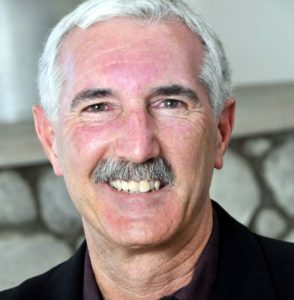 It’s easy to accept the received wisdom of the workplace without giving it much thought. For example, you’ll be an expert at something if you practice for 10,000 hours. You’re more likely to achieve your goals if they are SMART (specific, measurable, attainable, relevant, and time-bound). Playing to your strengths is the best way forward. There are many others besides.
It’s easy to accept the received wisdom of the workplace without giving it much thought. For example, you’ll be an expert at something if you practice for 10,000 hours. You’re more likely to achieve your goals if they are SMART (specific, measurable, attainable, relevant, and time-bound). Playing to your strengths is the best way forward. There are many others besides.
But when something starts to sound like a platitude, alarm bells ring in the minds of analytical people. That’s what happened to psychologist Ken Nowack. In our Expert Interview podcast, he cites research that put 100 previously published psychological experiments to the test. Only 36 percent of the new results matched the old.
“This raises a really good question [about] the evolution of what we know and what we don’t know. And it’s one of the reasons I’ve been very interested in validating some of these popular misconceptions, looking at it from a perspective of, is there empirical evidence to really support it?” he says.
As he interrogated the most common beliefs, Nowack came to some interesting conclusions. For example, he looked at the idea that 10,000 hours of practice will turn you into an expert.
“The truth is, it’s really an urban myth,” he says. “Obviously we have to have a genetic set point in order to become great at anything that we do, and deliberate practice over time will, in fact, make us better, [but] it won’t necessarily make us an expert.”
So how can that revised theory be applied in the workplace? Nowack believes there should be a shift in emphasis, away from the idea that anyone can learn anything and toward respecting natural aptitude and, importantly, interest.
Take leadership as an example. “Many organizations we work and consult with very commonly find really great experts, independent contributors and specialists that have been teased into leadership roles without much of an assessment around aptitude, capability, nor interest and motivation in really wanting to lead other people,” he reports.
You’re not going to be a great leader if you don’t have a natural inclination toward leadership, no matter how much practice you do. Nowack suggests that selection boards take this into account.
As for SMART goals, Nowack says that goal intentions aren’t nearly as effective as implementation intentions if you want to actually change a behavior.
For example, you may want to stay calm in situations that make you feel anxious. Simply having that goal intention might be enough for some people, but reframing it as an implementation intention is more likely to work. In this case, that implementation intention might be: if my heart starts to race, I’ll use my breathing technique and focus on how relaxed it makes me feel. You can see how that might be more effective than simply stating the goal.
Nowack has also assessed the truth behind the “strengths-based” movement, which promotes the idea that leveraging an individual’s competence will result in the best performance. One of the problems with this is that it relies, in part, on people being able to identify their own strengths. That’s quite hard to do.
“[There’s] a type of individual that’s fairly anxious and fairly tuned in to themselves, and we find that in general they’re very hypercritical,” Nowack explains. “When we sit down and give feedback to these under-estimators, what they do is monopolize the conversation and are very tough on themselves. All they want to talk about is the lowest score they find in a feedback report or a performance review, or a comment that somebody has written. We refer to this as being hyper-vigilant to the negative.”
He says these “under-estimators” will never leverage their strengths, which creates problems for leaders pursuing strengths-based talent management.
Another area of research for Nowack is sleep and the debilitating effects of not getting enough, which aren’t always well understood in the workplace. In this clip, from our Expert Interview podcast, he offers some practical tips for leaders who want to rethink their approach to tiredness in the workplace.
Listen to the full Expert Interview in the Mind Tools Club ¦ Install Flash Player.
Do you have any favorite urban myths of the workplace? Join the discussion below!



